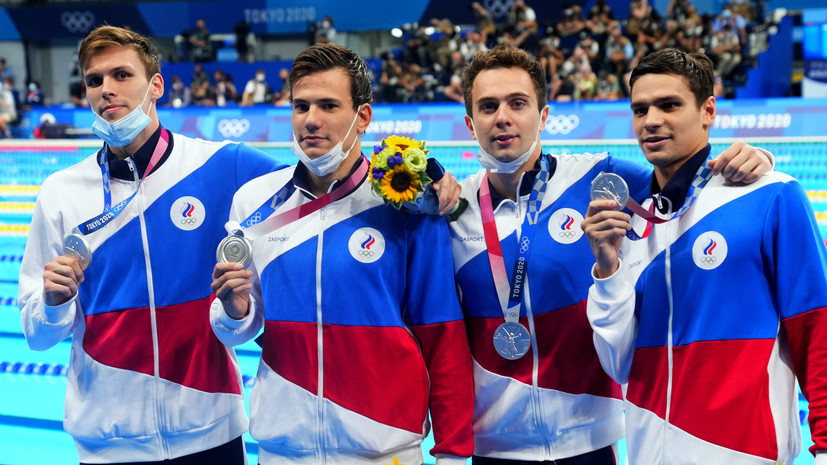Throughout the history of the Olympics, and the men's 4 × 200 relay has existed in the Games program since 1908, the Americans have not won only seven times out of 26. In America, in fact, the name “Pride of the Nation” has taken root. Why this relay is called that way, commentators and journalists regularly remember every four years, but I will repeat it again. Moreover, I myself heard the explanation of this term 45 years ago at the Olympic Games in Montreal from the outstanding American coach Doc Councilman - the man who invented such a grandiose name for the relay.
“200 meters freestyle is the distance that cannot be won with only talent. The skill of the trainer, the ability to prepare a student, is also manifested here. If there are strong middle swimmers in a country, that is a swimming school grade. If they can form a team capable of winning the relay at the Olympic Games, this is the most striking and accurate indicator of the level of swimming in the country. The pride of the nation, ”Councilman answered me.
Probably, it would not be entirely legitimate to consider the USSR national team's relay gold as a victory over the Americans in 1980 (the US national team was not at those Games because of the boycott), but twelve years later, in Barcelona, Russia fully enjoyed the triumph: Evgeny Sadovy, Vladimir Pyshnenko, Dmitry Lepikov and Veniamin Tayanovich, as well as Alexei Kudryavtsev and Yuri Mukhin, who started at those Games in the morning swim, recorded the greatest achievement in Olympic history.
The Australians beat America with a world record in 2000.
This victory was the only exception in the past 29 years.
But in Tokyo, US swimmers were only fourth.
Perhaps, the experiments with selection affected: it was held in the United States five weeks before the start of the Games, and this is the most inconvenient time that can be imagined. It is unrealistic to keep in shape during this time, and there is not enough time to relieve the load and reach the peak again. In order to solve this problem, a truly ingenious coaching mind is required, and this is another confirmation that the 4 × 200 relay is absolutely a coaching story.
Did Russia even have a theoretical chance to be in this final in the place of the British, that is, to win? Definitely not. Such feats are possible only when people go to the start, ringing from their own readiness, and, jumping into the water, do the impossible. Like in that Barcelona final almost thirty years ago, where the Russian finisher Tayanovich threw his hands on the finish wall with such force that he broke his fingers in the blood. In the team types of the program, many generally swim noticeably faster than in their individual disciplines: class relay races at all times were distinguished by this very quality.
Russia did not work out a bit in this regard: Malyutin, who opened the relay, overcame his stage in 1: 45.69, although the day before he swam the final of the individual 200 meters for 1.45.01. At the first stage, it became clear that one could not dream of victory: God forbid, at least to hook on a bronze medal. Moreover, Girev swam far from his best result: at the qualifying championship of the country, he showed about the same seconds as in Tokyo at his stage, but there he swam “clean” 200 m, and in the relay he went from a “live” start , which automatically removes 0.6-0.7 seconds from the result.
The Russian relay was made silver on Wednesday by two people - Rylov and Dovgalyuk. More precisely, it looked like this from the outside: the gold medalist in the 100-meter backstroke went to the third stage, with a microscopic advantage over Australia and Italy. Of course, they immediately tried to devour him. But it didn't work out. Thanks to this, Dovgalyuk went into the swim, having a more solid lead in reserve, and did the main thing - he kept it.

